The future of a new Ford Focus RS hinges on its engineers creating a high-output, full-hybrid powertrain that fits in with the new EU regime for average fleet CO2 emissions – a challenge that Ford bosses describe as “waiting for a solution”.
A senior Ford executive told Autocar: “We are waiting for our engineering team to come up with a solution on the powertrain and that is not easy given the new fleet CO2 regulations.”
Eighteen months ago, Ford was understood to be looking at a mild-hybrid 48V powertrain. To minimise CO2 figures, the firm now believes the engine has to be a full hybrid. “The mild hybrid is not enough,” said our source.
The challenge of the new fleet average figure – set industry-wide at 95g/km, but varying according to a car company’s mix of vehicles and their kerb weights – now means the Focus RS won’t be seen in 2020 as rumoured. Instead, it is more likely to be launched in 2022/23.
In order to achieve both high performance and low emissions, Autocar understands that Ford has switched its attention to an RS version of the full-hybrid 2.5-litre petrol unit that will power range-topping models of the new Kuga this year. In that application, the Atkinson-cycle 2.5-litre four-cylinder engine and motor deliver 222bhp, with drive through a CVT auto and optional four-wheel drive.
All-wheel drive will be vital to harness the Focus RS’s required power, which is likely to approach 400bhp. The last Focus RS was all-wheel drive and delivered 345bhp and 376lb ft from a 2.3-litre turbo four but equivalent models from Audi and Mercedes have since hiked outputs to nearer 400bhp and beyond.
To achieve a similar output would require a blend of combustion and electrical power – possibly 300bhp from a turbocharged 2.5-litre engine and 100bhp from the electric motor.

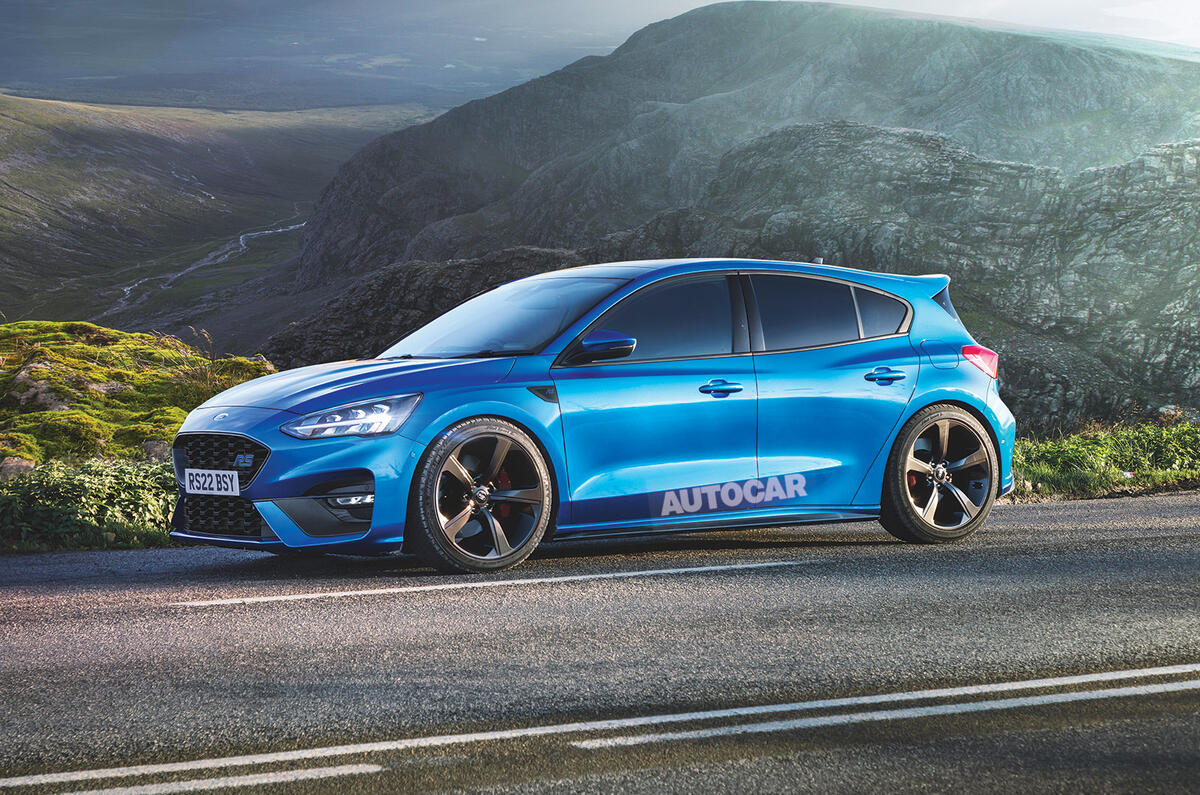
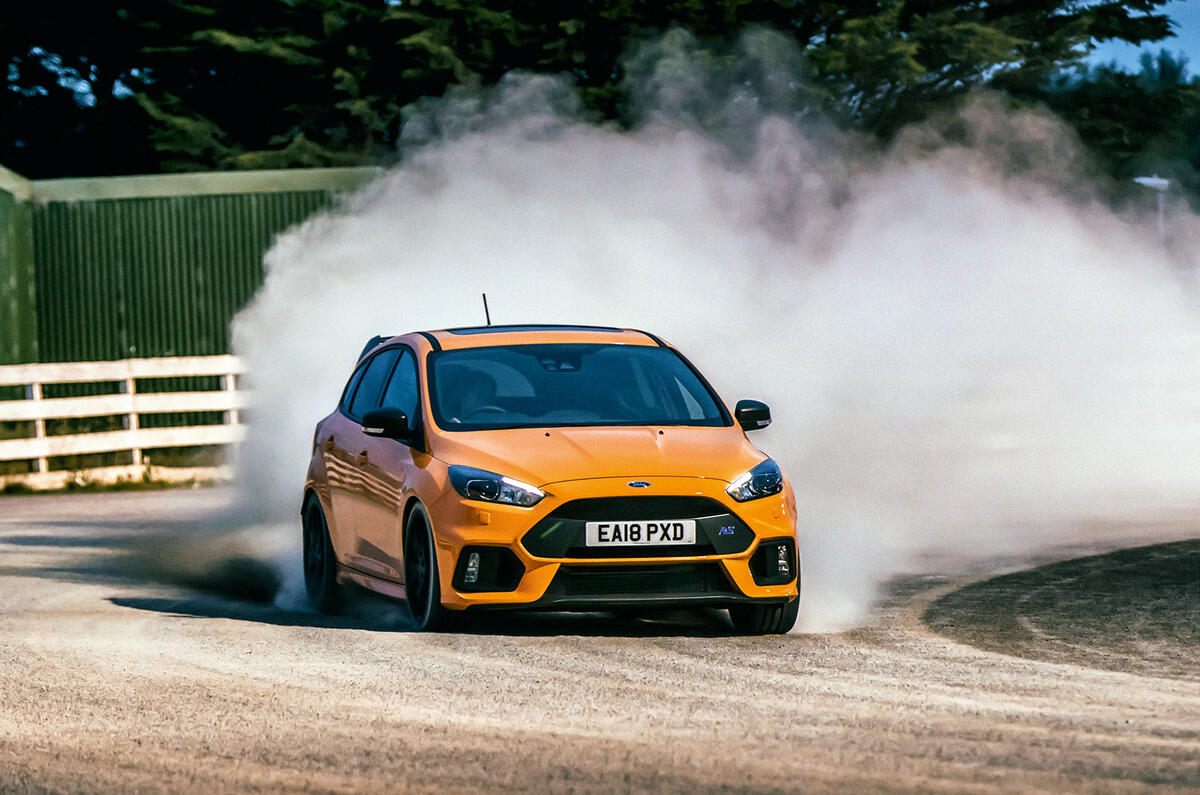
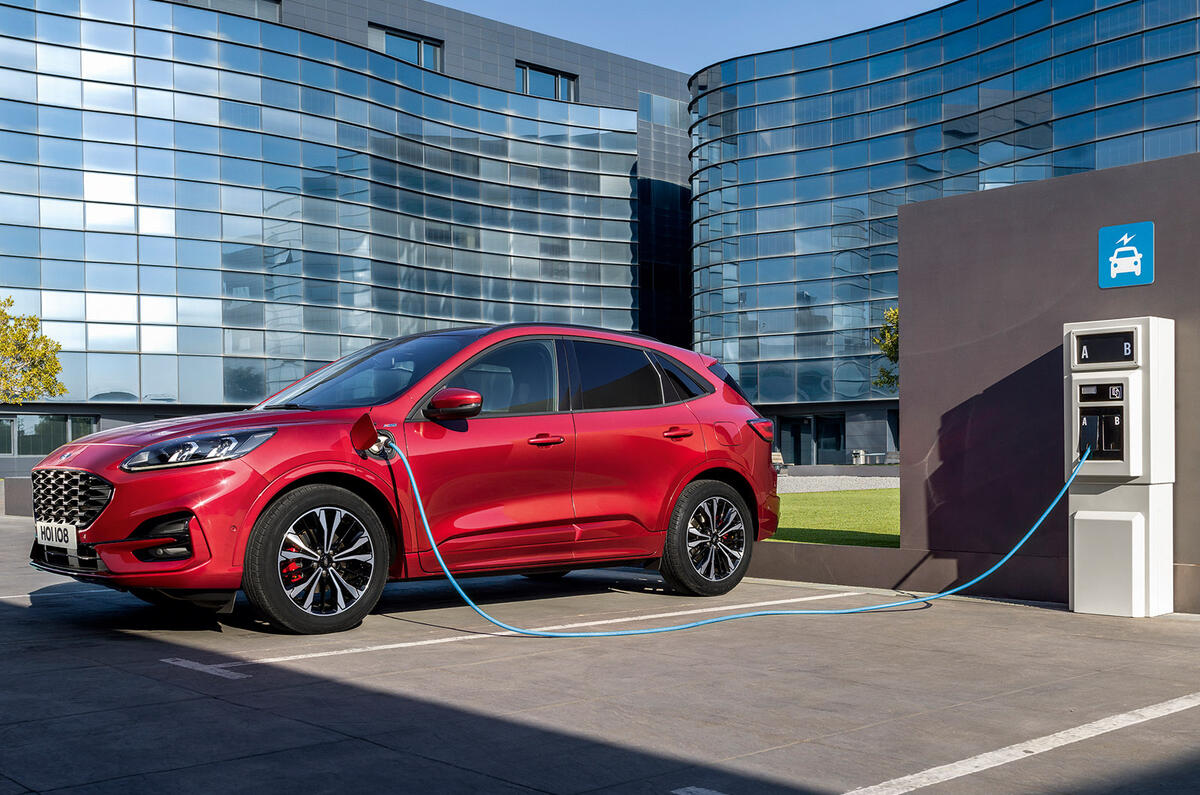
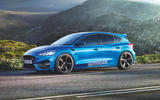

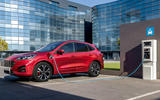

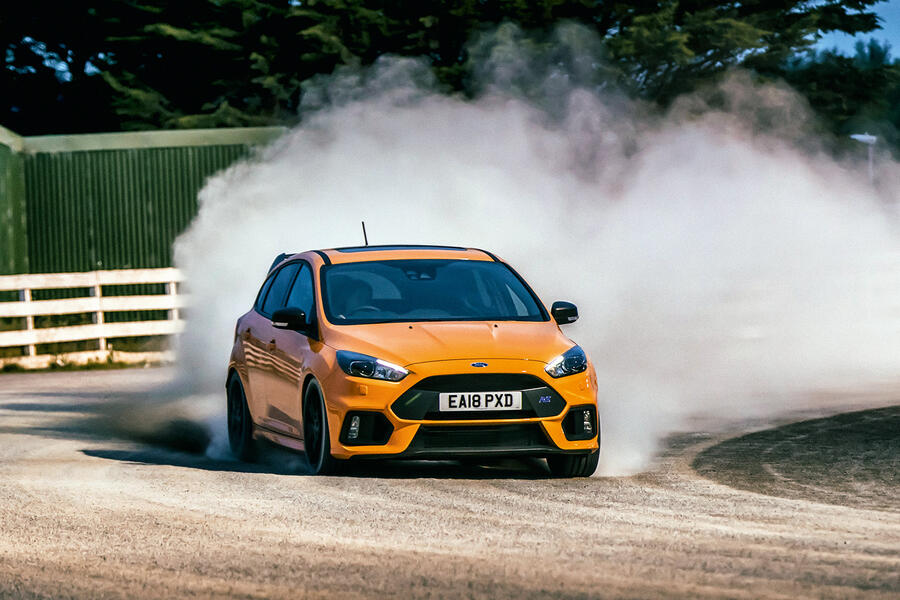
Join the debate
Cersai Lannister
Blue Oval and Out?
I wonder, and hope, Ford is able to do an RS car now the bar is so high. In days past RS cars helped burnish its reputation, along with heroes like the Capri Injection, Racing Puma and other special vehicles.
Today, more than ever, Ford and the rest have to engineer everything down to the last penny whereas the base quality and technology engineered into a small BMW, Audi, etc. is of a different order. The Germans have things like active suspension, dynamic safety, and breathtakingly powerful engines, etc all package-ready within their component portfolio. Much as I love the idea of an RS, I fear now that mass-manufacturers are simply beaten from above once they stray into the £35-40k mark. Please tell me I'm wrong!
jl4069
car mags need to get more
...insightful thinkers on staff. That Ford was going to have a nearly impossible time building this new RS at a sensible sports car weight, should have been more than obvious. i postred about this on piston heads moths ago, and no one got it. if this RS is 1700 or 1800 kilos it simply should not be built. Ford has a lot of thinking and engineeering to do, if they think they are going to build a sensibly lightweight sports hatch. It seems very unlikely that they have the budget or will to build such a thing. Without significant (see Toyota Yaris) use of carbon fiber and lightwiegtht batteries this car is a NO GO.
Add your comment